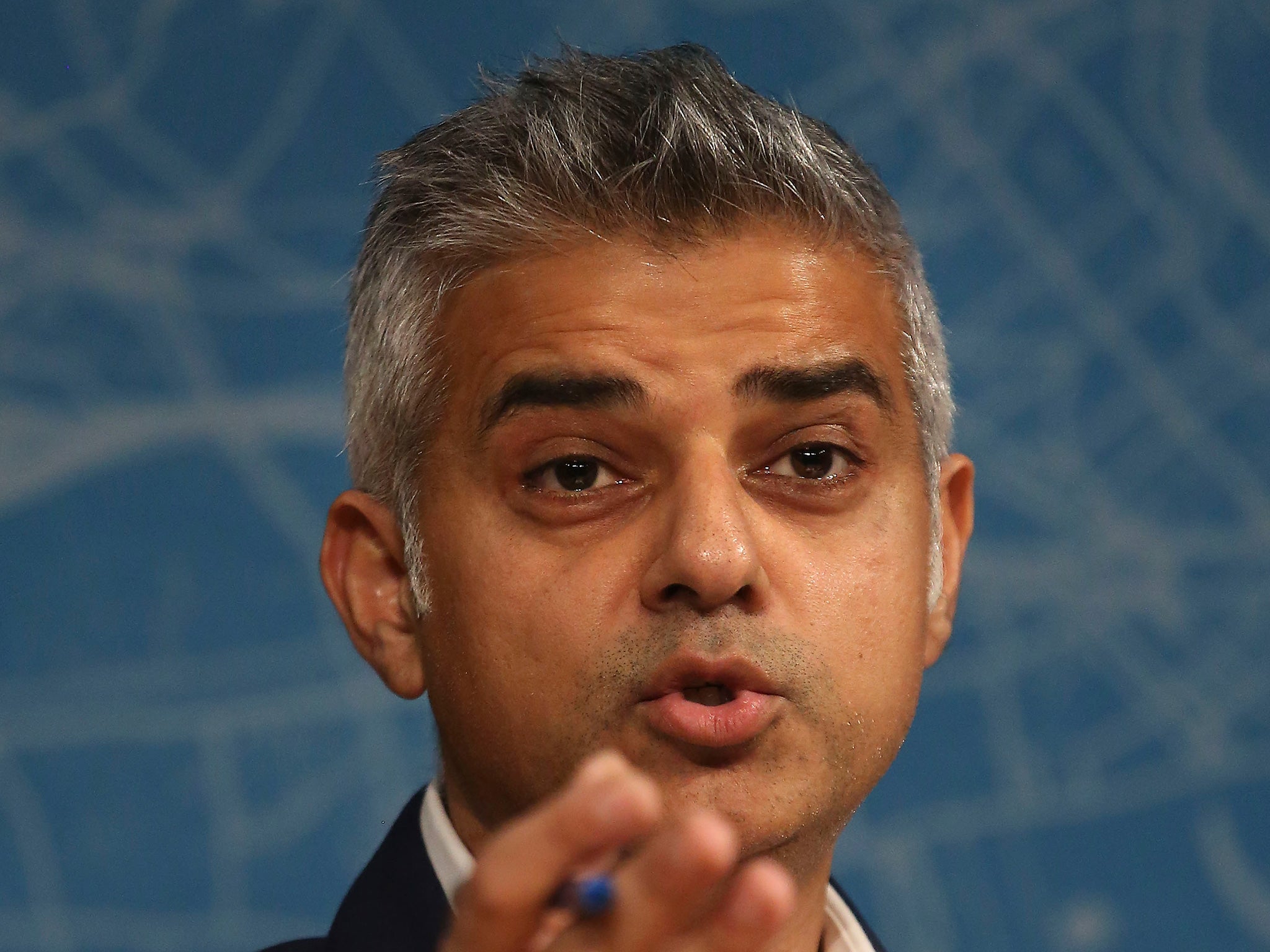Sadiq Khan: Labour's mayoral candidate for London says Muslims must root out 'cancer' of radicalisation
Mr Khan warned that growing radicalisation was a 'cancer eating at the heart of our society all the time'

Your support helps us to tell the story
From reproductive rights to climate change to Big Tech, The Independent is on the ground when the story is developing. Whether it's investigating the financials of Elon Musk's pro-Trump PAC or producing our latest documentary, 'The A Word', which shines a light on the American women fighting for reproductive rights, we know how important it is to parse out the facts from the messaging.
At such a critical moment in US history, we need reporters on the ground. Your donation allows us to keep sending journalists to speak to both sides of the story.
The Independent is trusted by Americans across the entire political spectrum. And unlike many other quality news outlets, we choose not to lock Americans out of our reporting and analysis with paywalls. We believe quality journalism should be available to everyone, paid for by those who can afford it.
Your support makes all the difference.Most British Muslims have encountered an extremist in their lives and have a special responsibility to help root out the “cancer” of violent radicalisation from the heart of society, Labour’s candidate to become mayor of London has said.
Sadiq Khan, the most senior Muslim in Labour’s ranks, spoke of his fears that his teenage daughters could be tricked into going to Syria by online jihadists and disclosed that he had grown up in south London with boys who went on to act in “terrible ways”.
Describing the mass killings in Paris as an “attack on our way of life”, he warned that growing radicalisation was a “cancer eating at the heart of our society all the time”.
Mr Khan argued that people had for too long “buried our heads in the sand” over the problem and said British Muslims had a “special role to play in tackling extremism” – not because they are more responsible than other groups, but because they could be more effective in confronting it.
Speaking at a Westminster lunch for journalists, the Tooting MP said: “This fight is personal for me. Like all parents I want to know my daughters are safe. I worry that they or their friends could be groomed by extremists on the internet or tricked into running off to Syria like other children have been.
“Extremism isn’t a theoretical risk. Most British Muslims have come across someone with extremist views at some point – and so have I.
“It’s affected my personal life, my friendships and my career. People I knew as a boy have gone on to hold extremist views, and even to act on them in terrible ways.”
He disclosed that each time he has stood as an MP he has faced a “campaign of hate” and has received police protection advice as a result.
“Extremists came and protested outside mosques in my community, handing out leaflets telling the congregation – my friends and neighbours – that voting is banned in Islam. Telling people I’ve known since I was a boy that I am destined to go to hell. They say that Muslims shouldn’t take part in democracy.”
Mr Khan recalled that when he worked as a lawyer he had the “horrible” task of representing people with extremist views: “I’ve lost count of the number of times I’ve had to challenge the hideous views of seemingly intelligent and articulate people. People who look and sound like normal Londoners, until they say that 9/11 was a Mossad [Israeli secret service] conspiracy, that the Jewish workers in the Twin Towers were tipped off and escaped.”
Mr Khan, who faces a close battle with Conservative Zac Goldsmith in next May’s election, also called for a “prolonged and concerted effort by us all” to tackle Britain’s “social segregation”.
He argued: “We’ve protected people’s right to live their cultural life at the expense of creating a common life. Too many British Muslims grow up without really knowing anyone from a different background, without understanding or empathising with the lives and beliefs of others.
“And too many British people have never befriended a Muslim, never worked together, never eaten together, never played sports together. As a result, too many people have formed a single identity – too often based around their religion or ethnicity.”
Join our commenting forum
Join thought-provoking conversations, follow other Independent readers and see their replies
Comments